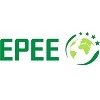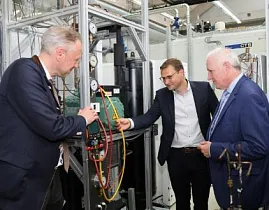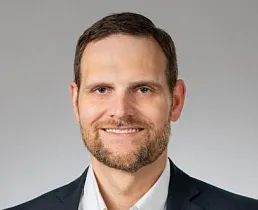
Market news, 15 May 2024
 EPEE, representing the cooling, refrigeration and heat pump industry in Europe, will take this opportunity to reiterate the industry’s commitment to continuously improve energy efficiency and urges governments and industry alike to work together to avoid a ‘cold crunch’.
EPEE commends the IEA for their work on this report and for drawing attention to cooling, not only to its contribution to societal development and wellbeing, but also to the challenges that arise from growing cooling demands. Measures to increase energy efficiency are crucial to respond effectively and in a sustainable way to growing global needs.Indeed, the report which analyses the development of cooling on a global level, and in particular in developing countries, concludes that reducing the energy demand for cooling is essential and that energy efficiency improvements of both equipment and buildings have already successfully delivered large, cost effective energy savings in many countries.
Andrea Voigt, EPEE Director General explains: “The heating and cooling industry has made great strides in providing consumers with products that are top of the line, energy efficient and sustainable. But energy efficiency improvement of products are only part of the picture. Much more can be done to tackle these upcoming challenges by taking a broader, more holistic approach to energy efficiency addressing the overall technical building systems. It starts with proper dimensioning, installation, service and maintenance of systems, and also includes monitoring, controls and demand response to relieve the pressure on the grid. This would allow for a better balancing of energy supply and needs.”
EPEE has continuously advocated, in the context of discussions on the Clean Energy Package files, for inspection requirements to optimise the management of the various systems present in buildings but also for the promotion of building automation and control systems, which ensure products and buildings actually deliver on the projected energy efficiency gains. Now, EPEE is hoping to help Member States and the European Commission to concretely start implementing these measures and increasing the uptake of critical building technologies to lay the ground for future challenges.
Next to energy efficiency, EPEE has also been working on making the HFC phase-down a success in Europe. On a global level, EPEE has been supporting the so-called Kigali Amendment which introduces a global phase-down of HFCs under the Montreal Protocol and will enter into force in 2019, through projects such as the HFC Outlook model in collaboration with UNEP, as well as through active participation in international and cross-sector initiatives to raise awareness and drive change at political level.
Andrea Voigt highlights that “the HVAC-R industry is fully aware of the challenge and committed to addressing it in a concerted sustained manner. Solutions already exist today and considerable investments are being made to respond to the growing needs of tomorrow.”
EPEE and its members call on governments and industry alike to work together to avoid a ‘cold crunch’, by putting in place the right framework and incentives for increased energy efficiency.
EPEE, representing the cooling, refrigeration and heat pump industry in Europe, will take this opportunity to reiterate the industry’s commitment to continuously improve energy efficiency and urges governments and industry alike to work together to avoid a ‘cold crunch’.
EPEE commends the IEA for their work on this report and for drawing attention to cooling, not only to its contribution to societal development and wellbeing, but also to the challenges that arise from growing cooling demands. Measures to increase energy efficiency are crucial to respond effectively and in a sustainable way to growing global needs.Indeed, the report which analyses the development of cooling on a global level, and in particular in developing countries, concludes that reducing the energy demand for cooling is essential and that energy efficiency improvements of both equipment and buildings have already successfully delivered large, cost effective energy savings in many countries.
Andrea Voigt, EPEE Director General explains: “The heating and cooling industry has made great strides in providing consumers with products that are top of the line, energy efficient and sustainable. But energy efficiency improvement of products are only part of the picture. Much more can be done to tackle these upcoming challenges by taking a broader, more holistic approach to energy efficiency addressing the overall technical building systems. It starts with proper dimensioning, installation, service and maintenance of systems, and also includes monitoring, controls and demand response to relieve the pressure on the grid. This would allow for a better balancing of energy supply and needs.”
EPEE has continuously advocated, in the context of discussions on the Clean Energy Package files, for inspection requirements to optimise the management of the various systems present in buildings but also for the promotion of building automation and control systems, which ensure products and buildings actually deliver on the projected energy efficiency gains. Now, EPEE is hoping to help Member States and the European Commission to concretely start implementing these measures and increasing the uptake of critical building technologies to lay the ground for future challenges.
Next to energy efficiency, EPEE has also been working on making the HFC phase-down a success in Europe. On a global level, EPEE has been supporting the so-called Kigali Amendment which introduces a global phase-down of HFCs under the Montreal Protocol and will enter into force in 2019, through projects such as the HFC Outlook model in collaboration with UNEP, as well as through active participation in international and cross-sector initiatives to raise awareness and drive change at political level.
Andrea Voigt highlights that “the HVAC-R industry is fully aware of the challenge and committed to addressing it in a concerted sustained manner. Solutions already exist today and considerable investments are being made to respond to the growing needs of tomorrow.”
EPEE and its members call on governments and industry alike to work together to avoid a ‘cold crunch’, by putting in place the right framework and incentives for increased energy efficiency.

